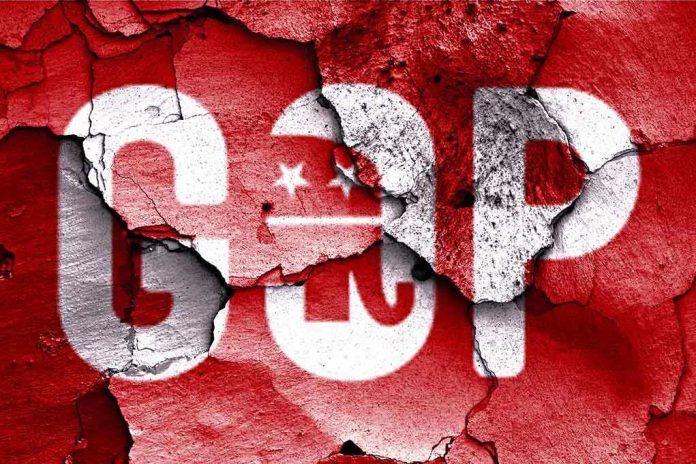
When Ben Shapiro, a conservative kingmaker, publicly accused Marjorie Taylor Greene of “always playing the victim” during her high-stakes feud with Donald Trump, the shockwaves exposed a new fault line within the MAGA movement that could reshape the future of the Republican Party.
Story Snapshot
- Ben Shapiro fiercely criticized Marjorie Taylor Greene for her public clash with Donald Trump, accusing her of victimhood and conspiracy mongering.
- The rift was sparked by Greene’s push to release Jeffrey Epstein files, which Trump opposed, leading him to rescind his endorsement.
- Shapiro’s intervention signals internal policing within the conservative movement and highlights shifting alliances among GOP power players.
- This feud underscores the volatility and fragmentation roiling the MAGA and broader Republican base as the party heads into the next election cycle.
Shapiro’s Rebuke: Conservative Discipline Meets Public Spectacle
Ben Shapiro, never one to mince words, used his platform to deliver a cutting indictment of Marjorie Taylor Greene’s tactics. On November 17, 2025, Shapiro interrupted the usual conservative consensus, blasting Greene for “playing the victim card” and casting doubt on her motives. His critique was not just personal; it was a warning shot to any would-be rebels inside the MAGA tent, making clear that not even firebrands are above reproach when party unity hangs in the balance.
VIDEO – Ben Shapiro Shreds Marjorie Taylor Greene over Trump Rift: ‘Always Playing the Victim’ https://t.co/BSITz1KREl
— Grabien (@GrabienMedia) November 18, 2025
Shapiro’s comments came as the feud between Greene and Trump reached a fever pitch. Greene, once seen as a staunch Trump loyalist, had joined a House push to release secret files related to Jeffrey Epstein—a move Trump resisted, citing national security and privacy issues. When Greene persisted, the president publicly labeled her a “traitor” and withdrew his coveted endorsement. In response, Greene accused Trump of inciting threats against her and issued an apology for “toxic politics.” The drama, already intense, exploded into a national spectacle as Shapiro weighed in with his trademark precision and disdain.
Old Allies, New Lines: The Trump-Greene Power Struggle
Marjorie Taylor Greene built her career on MAGA loyalty, but her recent moves suggest an ambitious pivot. Her advocacy for the Epstein files, combined with outspoken criticism of Trump’s policies on Israel, marked a clear break from the party line. Trump’s retaliation was swift and public, severing a partnership once considered unbreakable. This public excommunication echoes Trump’s earlier purges, from Liz Cheney to Jeff Sessions, but with a twist: Greene has not retreated. Instead, she’s taken her case to mainstream media, signaling she will not be silenced or sidelined easily.
The schism has forced a reckoning within conservative ranks. Greene’s populist base and formidable fundraising give her staying power, even as Trump’s endorsement remains the gold standard. Shapiro’s critique, delivered to millions, serves as both a boundary and a test. The central question: can the MAGA movement tolerate dissent, or will it fracture under the weight of competing egos and agendas?
GOP Turbulence: Implications for Party Unity and 2026
The Greene-Shapiro-Trump triangle has created ripples far beyond their personal brands. The Republican Party, already struggling with a razor-thin House majority and post-2024 soul-searching, now faces a fresh round of infighting. The Epstein files controversy has reignited conspiracy theories and intra-party distrust, fueling headlines on both conservative and mainstream outlets. House Republicans, including Speaker Mike Johnson, watch uneasily as the drama threatens to spill over into legislative gridlock and primary challenges.
For the MAGA movement, the episode is a stress test. Will loyalty to Trump remain the ultimate litmus, or does Greene’s rebellion mark the emergence of a new conservative faction? Shapiro’s role as ideological gatekeeper highlights the stakes: his willingness to publicly rebuke Greene signals a desire for discipline and message control, even at the risk of alienating significant segments of the base. Political analysts suggest this feud could reshape alliances and strategies ahead of 2026, with implications for the party’s direction and the broader conservative coalition.
Expert Analysis: Realignment or Just More Drama?
Observers across the political spectrum see the Shapiro-Greene-Trump conflict as more than just another Beltway brawl. For some, Greene’s actions represent principled dissent—a willingness to challenge orthodoxy for the sake of transparency. Others, echoing Shapiro, view her as opportunistic, exploiting controversy to boost her profile while undermining party unity. The conservative commentariat remains divided, with some backing Shapiro’s tough love and others warning that alienating Greene’s supporters could backfire in critical districts.
Academics frame the story as a case study in party discipline and the dangers of personality-driven politics. The spectacle of high-profile allies turning on each other in public view is rare, especially within a movement as tightly controlled as MAGA. Yet, as the dust settles, the broader lesson may be this: when power, loyalty, and ambition collide, even the strongest alliances can unravel, leaving the future of the movement—and the party—up for grabs.



